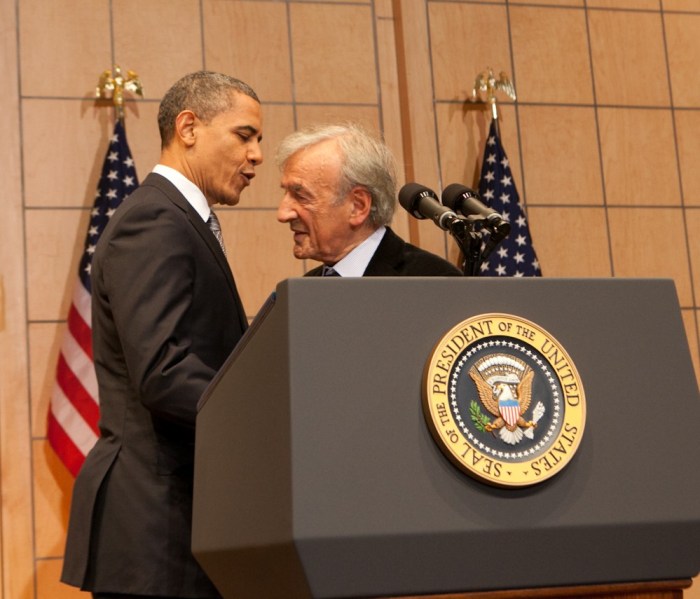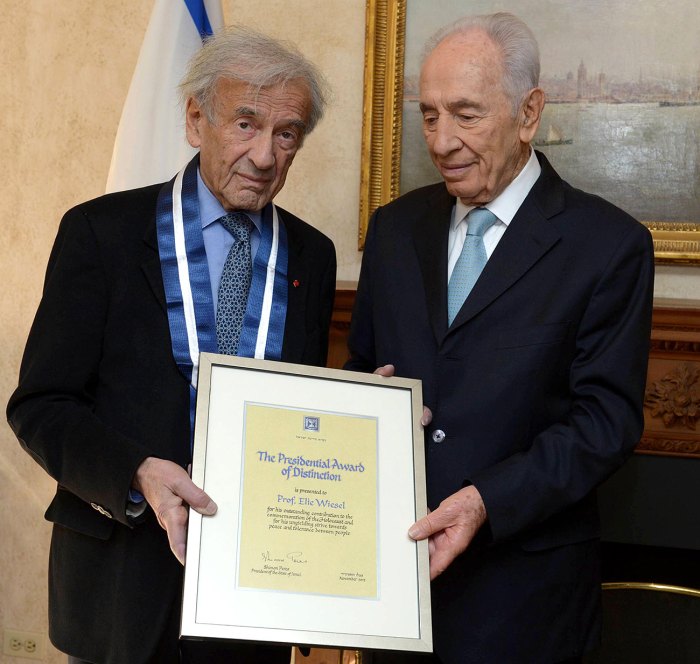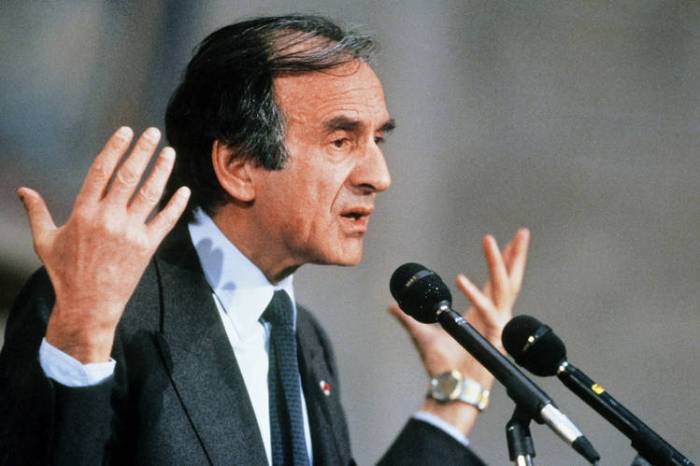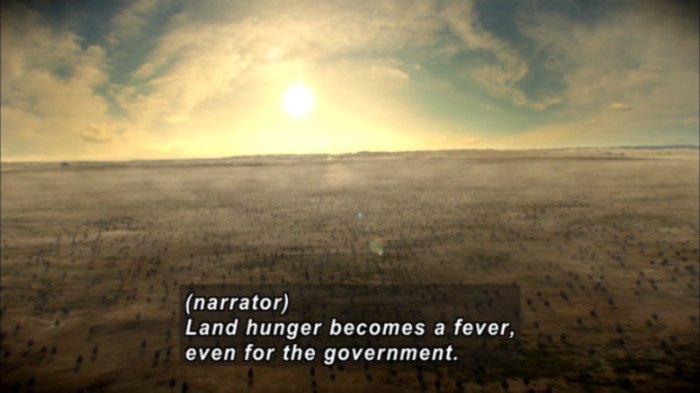Elie wiesel nobel prize speech pdf – Elie Wiesel’s Nobel Prize speech PDF offers a profound and thought-provoking examination of the Holocaust’s lasting legacy, the perils of indifference, and the indomitable power of hope. This meticulously crafted address stands as a testament to Wiesel’s unwavering commitment to memory and reconciliation, urging humanity to confront the darkness of the past and strive for a future free from hatred and violence.
Through a blend of personal anecdotes, historical insights, and evocative language, Wiesel eloquently articulates the moral imperative to remember the victims of the Holocaust and to combat all forms of intolerance and oppression. His speech resonates with timeless truths and serves as a powerful reminder of the human capacity for both great evil and profound compassion.
Elie Wiesel’s Nobel Prize Speech: Overview

Elie Wiesel, a Holocaust survivor and Nobel Peace Prize laureate, delivered a powerful speech upon receiving the Nobel Peace Prize in 1986. His speech, titled “Hope, Despair, and Memory,” addressed the horrors of the Holocaust, the importance of memory, and the need for hope in the face of adversity.
Analysis of the Speech’s Structure and Style
Structure
Wiesel’s speech is divided into three main sections. The first section focuses on the horrors of the Holocaust, the second on the importance of memory, and the third on the need for hope. Wiesel uses a chronological structure, beginning with his own experiences in the concentration camps and ending with a call to action for a more just and compassionate world.
Literary Devices and Rhetorical Strategies, Elie wiesel nobel prize speech pdf
Wiesel employs a variety of literary devices and rhetorical strategies to convey his message. He uses metaphors, similes, and personal anecdotes to make his experiences relatable and emotionally resonant. He also uses repetition, parallelism, and antithesis to create emphasis and impact.
Key Themes and Messages: Elie Wiesel Nobel Prize Speech Pdf

The Importance of Memory
Wiesel argues that memory is essential for preventing future atrocities. He says, “To forget the dead would be akin to killing them a second time.” Wiesel believes that by remembering the Holocaust, we can learn from the mistakes of the past and work to prevent them from happening again.
The Dangers of Indifference
Wiesel also warns against the dangers of indifference. He says, “Indifference, after all, is more dangerous than anger and hatred. Indifference is what allows evil to flourish.” Wiesel believes that we must all be vigilant against indifference and speak out against injustice.
The Need for Hope
Despite the horrors he experienced, Wiesel ends his speech on a note of hope. He says, “Hope is not the conviction that something will turn out well, but the certainty that something makes sense, regardless of how it turns out.”
Wiesel believes that even in the darkest of times, we must never give up hope.
Historical and Cultural Context
Wiesel’s speech was delivered in the context of the Cold War, a time of heightened tensions between the United States and the Soviet Union. The speech was also delivered shortly after the release of the film “Schindler’s List,” which brought the horrors of the Holocaust to a wider audience.
Wiesel’s speech helped to raise awareness of the Holocaust and its lessons for the present day.
Reception and Impact of the Speech

Wiesel’s Nobel Prize speech was widely praised for its eloquence and its powerful message. The speech has been translated into more than 30 languages and has been read by millions of people around the world. The speech has also been used in educational settings to teach about the Holocaust and the importance of human rights.
PDF Analysis
The PDF version of Wiesel’s Nobel Prize speech is available on the Nobel Prize website. The PDF is a faithful reproduction of the original speech, including Wiesel’s handwritten notes. The PDF is also accompanied by an audio recording of the speech, which allows readers to hear Wiesel’s own voice.
Question & Answer Hub
What is the significance of Elie Wiesel’s Nobel Prize speech?
Wiesel’s speech is a powerful indictment of indifference and a passionate plea for remembrance and reconciliation. It has become a touchstone for understanding the Holocaust and its enduring impact on humanity.
How does Wiesel use language and imagery to convey his message?
Wiesel employs vivid metaphors, similes, and personal anecdotes to create a deeply emotional and evocative narrative. His use of language is both lyrical and haunting, leaving a lasting impression on readers.
What are the key themes explored in Wiesel’s speech?
Wiesel’s speech explores themes of memory, hope, indifference, and the human capacity for both good and evil. He argues that it is our moral imperative to remember the victims of the Holocaust and to fight against all forms of intolerance and oppression.
